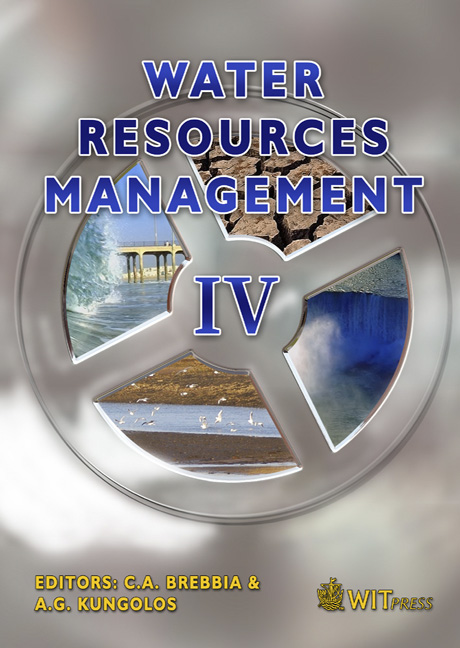Pollution Policies And Market Approaches In The Olifants River, South Africa
Price
Free (open access)
Transaction
Volume
103
Pages
10
Published
2007
Size
325 kb
Paper DOI
10.2495/WRM070481
Copyright
WIT Press
Author(s)
W. L. Nieuwoudt
Abstract
Approximately 3.4 million people live in the Olifants River Catchment in South Africa and a considerable proportion of South Africa’s mining, power generation and agricultural activities are concentrated here. Environmental pollution caused by mining activity is a problem. Two pollution policies are proposed; tradable pollution permits and pollution offsets in the river. The catchment surface is fractured by mining activities, and water is drained into underground aquifers which then seep into streams. A main problem is the effluent leakage from old disused mines. Mines have been permitted to release nutrients into the streams during periods of high flow, which is called the \“controlled release scheme”. During the past few years, river flow was low and sufficient dilution of nutrients was not possible. Mines and power stations had to invest in desalination plants at considerable cost. It is recommended that polluters should pay a discharge tax which is not the case at present. It is further proposed that tradable pollution permits be adopted which are subject to a rule that discharges in the river are only allowed when flow is sufficiently high and that trades may only occur within certain parameters. Apart from a pollution trading program it is suggested that bio-diversity offsets be created to provide incentives for cooperation amongst stakeholders. The problem with the defunct mines is that they leak pollutants all the time including during the period when river flow is low. DWAF (Department of Water Affairs and Forestry) has accepted ownership of these mines but they may not have the technology (which is expensive) to desalinate the effluent. In an offsetting arrangement, incentives can be provided to existing mines to desalinate water from these defunct mines by allowing them to discharge a given amount in the Olifants when the water flow is sufficiently high. The above arrangement will cost the taxpayer nothing while discharge during low flow periods is reduced. A discussion was held with stakeholders of the Olifants River Forum during 2006 and support was received for some of these policy options. Keywords: water pollution, South Africa, off-sets, tradable pollution permits.
Keywords
water pollution, South Africa, off-sets, tradable pollution permits.





